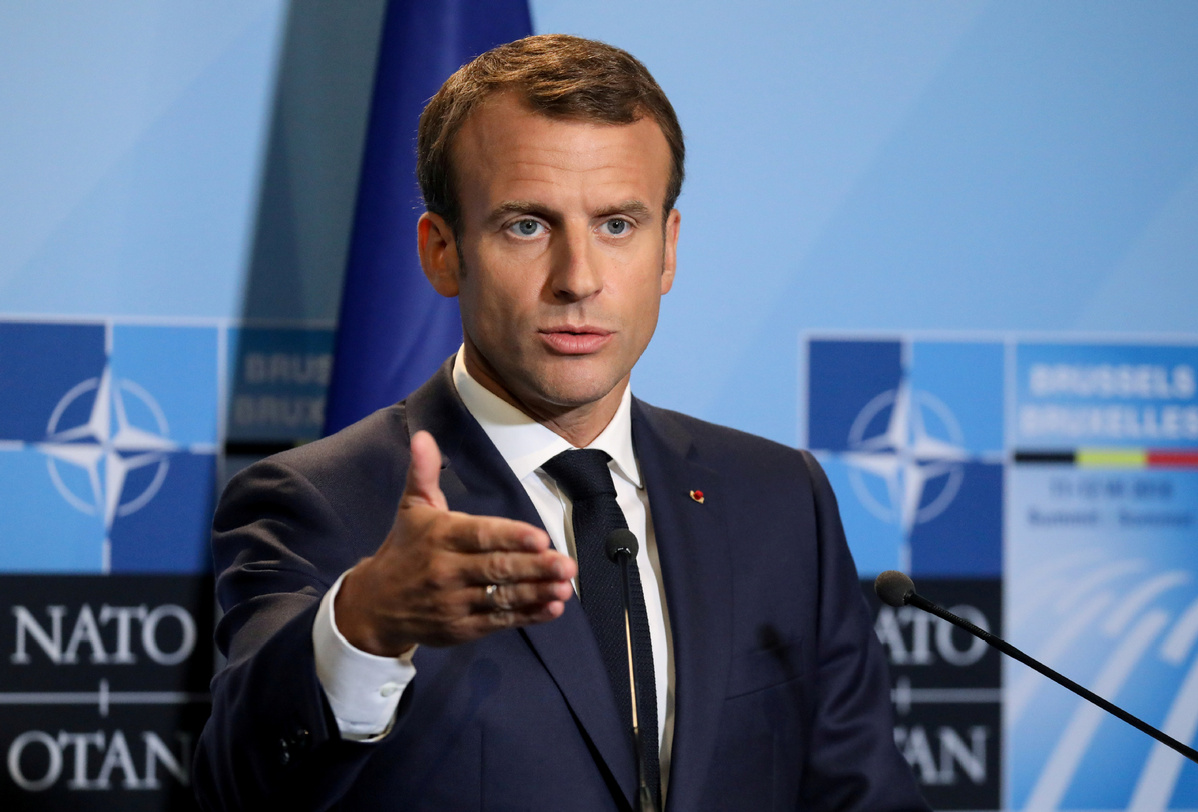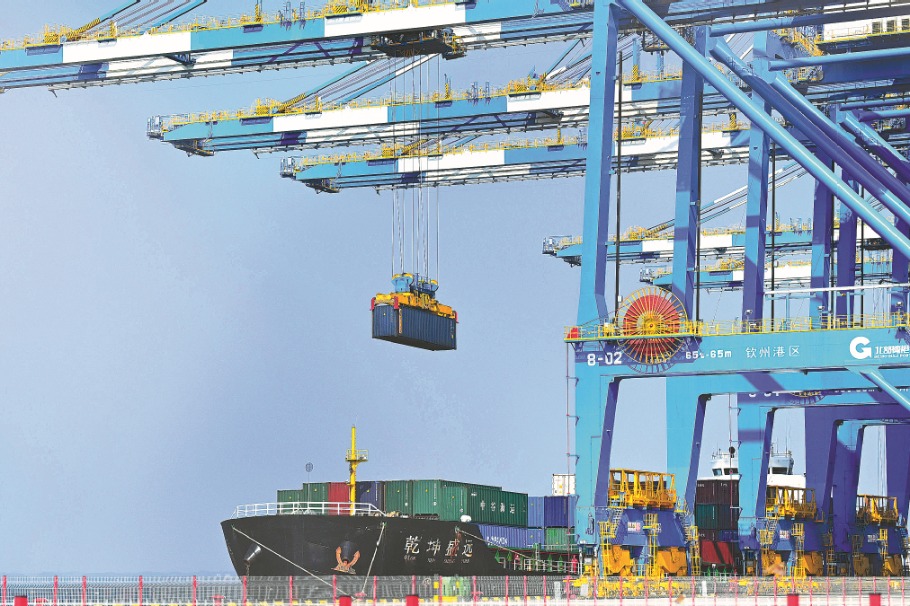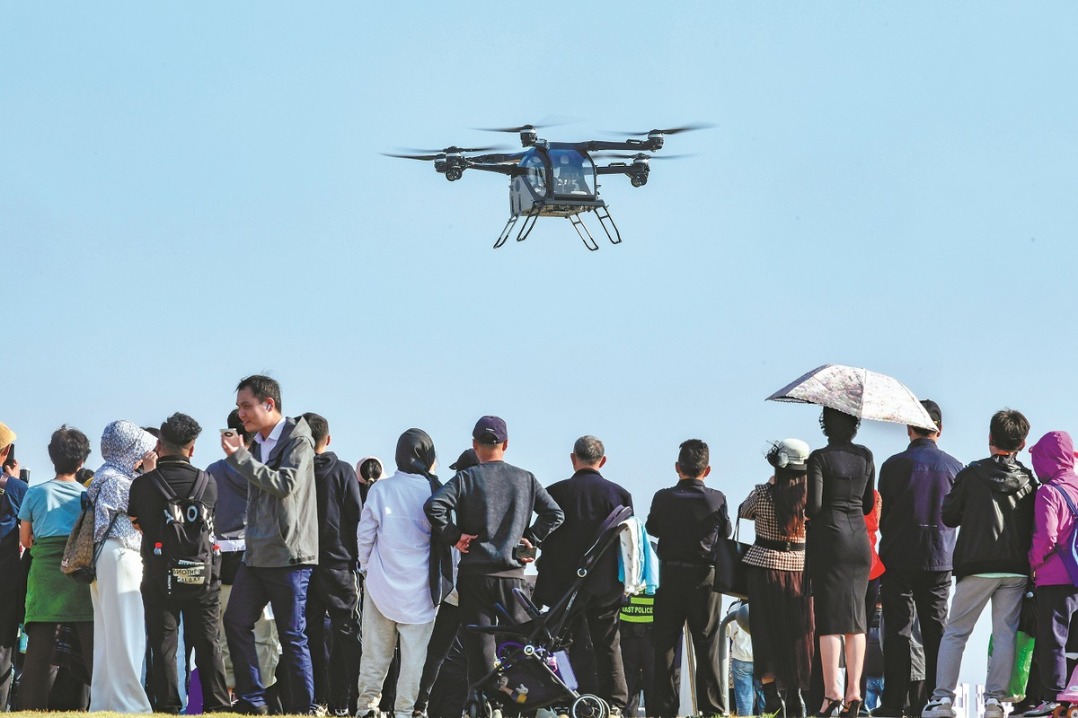NATO critic Macron plans to meet Trump
By Chen Yingqun | China Daily | Updated: 2019-11-13 10:04

After 'brain death' comment on alliance, he will get the US leader's ear
Just days after Emmanuel Macron raised eyebrows when he declared that NATO is suffering "brain death", the French president on Monday said he plans to meet the man he apparently holds most to blame for that state - Donald Trump.
Macron said he would meet with the US president ahead of a NATO summit on Dec 3-4 in London.
On Thursday, Macron said a lack of leadership from the United States, as well as poor coordination among treaty partners more broadly, is causing the "brain death" of the transatlantic security alliance.
But on Monday, Macron tweeted he had an "excellent phone conversation" with Trump in which they talked about Syria, Iran and NATO and that "many convergences were underlined".
Macron is setting a friendly tone before the meeting, but no visible positive results are likely to be achieved, as both sides are unlikely to change their established policies and views, analysts said.
The meeting signals that Trump would like to ease strained relations with Europe, as the reconstruction of ties is in Trump's interest as he gears up for his reelection campaign.
An improvement in relations could also increase France's position and influence in Europe, said Cui Hongjian, director of the department for European studies at the China Institute of International Studies.
"But the US' Middle East policy has an established direction, which will put the interest of the United States and its allies in the region first, and won't take much of Europe's interests into account," he said.
Macron expressed doubt about the alliance in an interview with British weekly The Economist. In the article, published on Nov 7, he said the European Union must step up and start acting as a strategic world power.
Cui said that Macron's dissatisfaction with the US must have accumulated over a series of moves that could diminish Europe's security and which went against France's values.
"Both the recent US move to pull troops out of northeast Syria without notice and its earlier step in exiting from the 2015 nuclear deal (with Iran) would increase insecurity around Europe," he said.
In another action that troubled Macron, the US early this month began the process of pulling out of the Paris Agreement, becoming the first country to exit the global pact to fight climate change. Macron has signaled that countering climate change is important to his agenda.
Since becoming France's president in 2017, Macron has called for the establishment of a European army for shared procurement and command and operations activities as a means of better defending Europe and to reduce the region's dependence on the US and NATO.
Adding to transatlantic tensions, the US has adopted an "America first" doctrine, and Trump has also threatened to reduce US its alliance commitments. He points to NATO members, especially its European allies, as not paying enough for their military.
He Yun, an assistant professor at Hunan University's School of Public Management, said that the sudden withdrawal of US troops from Syria leaves many in Europe to doubt whether the US and NATO can be counted on in times of crisis.
"Macron, who has for years advocated that Europe should develop independent armed forces to best provide a guarantee for its security, seized the opportunity to criticize NATO to garner support for his security visions," she said.
Sven Biscop, director of Europe in the World Program at the Egmont-Royal Institute for International Relations, a think tank, said as the global situation changes and the focus of US strategy shifts, it is important for Europe to "strengthen its own defense capabilities and integrate its defense efforts" to solve some of the region's own security problems.
Reuters contributed to this story.
























